第102章
"My own?" repeated the old man, with a smile of contempt; "why I have only got land for three, and last year we had not enough to last till Christmas."
"What do you do then?"
"What do we do? Why, I hire out as a labourer; and then I borrowed some money from your honour. We spent it all before Lent, and the tax is not paid yet."
"And how much is the tax?"
"Why, it's 17 roubles for my household. Oh, Lord, such a life!
One hardly knows one's self how one manages to live it."
"May I go into your hut?" asked Nekhludoff, stepping across the yard over the yellow-brown layers of manure that had been raked up by the forks, and were giving off a strong smell.
"Why not? Come in," said the old man, and stepping quickly with his bare feet over the manure, the liquid oozing between his toes, he passed Nekhludoff and opened the door of the hut.
The women arranged the kerchiefs on their heads and let down their skirts, and stood looking with surprise at the clean gentleman with gold studs to his sleeves who was entering their house. Two little girls, with nothing on but coarse chemises, rushed out of the hut. Nekhludoff took off his hat, and, stooping to get through the low door, entered, through a passage into the dirty, narrow hut, that smelt of sour food, and where much space was taken up by two weaving looms. In the but an old woman was standing by the stove, with the sleeves rolled up over her thin, sinewy brown arms.
"Here is our master come to see us," said the old man.
"I'm sure he's very welcome," said the old woman, kindly.
"I would like to see how you live."
"Well, you see how we live. The hut is coming down, and might kill one any day; but my old man he says it's good enough, and so we live like kings," said the brisk old woman, nervously jerking her head. "I'm getting the dinner; going to feed the workers."
"And what are you going to have for dinner?"
"Our food is very good. First course, bread and kvas; [kvas is a kind of sour, non-intoxicant beer made of rye] second course, kvas and bread," said the old woman, showing her teeth, which were half worn away.
"No," seriously; "let me see what you are going to eat."
"To eat?" said the old man, laughing. "Ours is not a very cunning meal. You just show him, wife."
"Want to see our peasant food? Well, you are an inquisitive gentleman, now I come to look at you. He wants to know everything. Did I not tell you bread and kvas and then we'll have soup. A woman brought us some fish, and that's what the soup is made of, and after that, potatoes."
"Nothing more?
"What more do you want? We'll also have a little milk," said the old woman, looking towards the door. The door stood open, and the passage outside was full of people--boys, girls, women with babies--thronged together to look at the strange gentleman who wanted to see the peasants' food. The old woman seemed to pride herself on the way she behaved with a gentleman.
"Yes, it's a miserable life, ours; that goes without saying, sir," said the old man. "What are you doing there?" he shouted to those in the passage. "Well, good-bye," said Nekhludoff, feeling ashamed and uneasy, though unable to account for the feeling.
"Thank you kindly for having looked us up," said the old man.
The people in the passage pressed closer together to let Nekhludoff pass, and he went out and continued his way up the street.
Two barefooted boys followed him out of the passage the elder in a shirt that had once been white, the other in a worn and faded pink one. Nekhludoff looked back at them.
"And where are you going now?" asked the boy with the white shirt. Nekhludoff answered: "To Matrona Kharina. Do you know her?" The boy with the pink shirt began laughing at something; but the elder asked, seriously:
"What Matrona is that? Is she old?"
"Yes, she is old."
"Oh--oh," he drawled; "that one; she's at the other end of the village; we'll show you. Yes, Fedka, we'll go with him. Shall we?"
"Yes, but the horses?"
"They'll be all right, I dare say."
Fedka agreed, and all three went up the street.